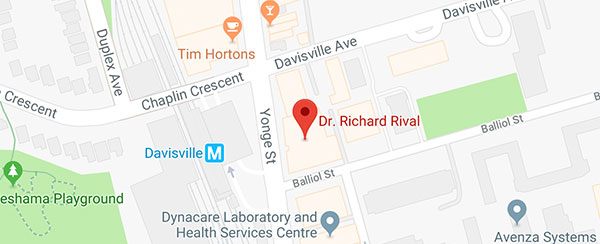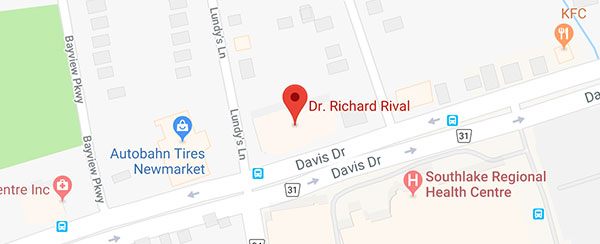Toronto Office
Dr. Richard Rival
501-1881 Yonge Street
Toronto, ON M4S 3C4
Phone: (866) 229-3223
Outside Ontario: (905) 830-6711
Monday–Friday: 9 a.m.–5 p.m.
Newmarket Office
Dr. Richard Rival
712 Davis Drive, Suite 101A
Newmarket, ON L3Y 8C3
Phone: (905) 830-6711
Outside Ontario: (905) 830-6711
Monday–Friday: 9 a.m.–5 p.m.
Rhinoplasty Satisfaction Linked to Preoperative Body Image
Dr. Richard Rival, a board-certified facial plastic surgeon specializing in rhinoplasty in Toronto, says the incidence of body dysmorphic disorder (BDD) symptoms often correlates with postoperative satisfaction for rhinoplasty patients.
Toronto, Ontario (April 2013) – Rhinoplasty patients’ body images may be an indicator of their satisfaction with their results, says Dr. Richard Rival (www.rivalcosmeticsurgery.com). Dr. Rival, a facial plastic surgeon specializing in rhinoplasty in Toronto, has noticed that patients who exhibit symptoms of body dysmorphic disorder (BDD) prior to their procedures are more likely to express some degree of dissatisfaction after surgery.
“Any rhinoplasty candidate that expresses an excessive degree of concern out of proportion to the actual physical problem should be monitored carefully” Dr. Rival says. “It’s important for cosmetic surgeons to ensure that a patient’s expectations are realistic. Unfortunately, many people with BDD will never think their features are just right – even after a surgical result that is a success by all other accounts.” Dr. Rival has found that pre-operative computer imaging has been particularly helpful in this group of patients. “Computer imaging helps me ensure that we are both on the same page aesthetically.”
A recent study published in Plastic and Reconstructive Surgery®, the journal of the American Society of Plastic Surgeons® (ASPS), parallels Dr. Rival’s observations. The study concluded that rhinoplasty patients with BDD may be more likely to be disappointed with their results.
People with BDD perceive one or more of their features as a defect. According to the ASPS, BDD is “the only psychiatric diagnosis that directly considers body image concerns.”
“As a facial plastic surgeon, I am obligated to consider my patients’ mental health extremely carefully,” Dr. Rival says. “People who approach me for plastic surgery in Toronto will obviously have some aesthetic concerns, but they need to understand what aesthetic medicine can and cannot fix.”
According to Dr. Rival, facial plastic surgery procedures have a scope that exceeds a single feature. “In a sense, rhinoplasty is as much about the rest of the face as it is about the nose,” he says. “For example, a successful rhinoplasty changes the size and shape of the nose to achieve balance with the chin and cheekbones.” According to Rival, balance is a difficult concept for those with BDD.
“When patients come to my cosmetic surgery practice in Toronto, I talk to them about perspective, and about the beauty in how the separate features interact as a whole,” Dr. Rival says. “BDD has the opposite effect, causing people to hyper-focus on one feature – specifically, overemphasizing its perceived negative qualities.”
Dr. Rival advises his cosmetic surgery candidates to assess their goals carefully and to seek psychiatric help if they find that they have unrealistic expectations. “Cosmetic surgery helps people feel better about themselves by alleviating physical irregularities,” he says. “What it won’t do is cure psychiatric issues – and that includes BDD.”
The best way to determine if you are a candidate for plastic surgery is to consult with Dr. Rival. We encourage you to request a consultation by filling out and printing our online consultation certificate, or call us at (866) 229-3223.

